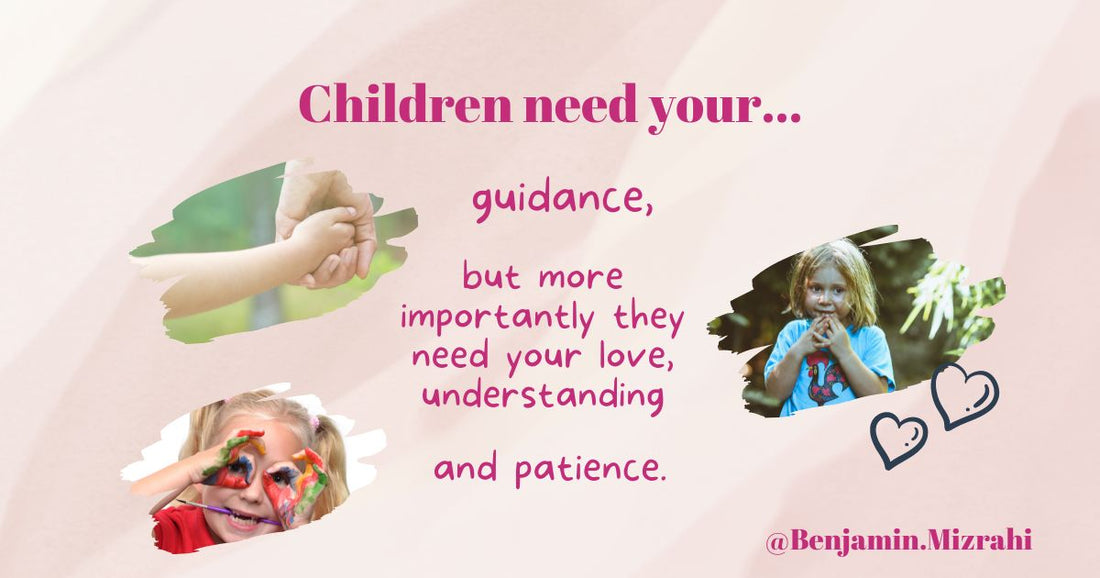
What Your Children Really Need
Share
Guidance sinks in best when you give it with love, understanding and patience.
You won't get it right every time, but you should never give up trying.
The key is to show your children that you accept them, even when they have big emotions. You do not need to accept their behavior, but you do accept who they are and how they feel.
Patience. It’s something many of us wish we had more of. But what exactly is patience? Patience means remaining calm, even in the face of a child’s extreme acting out behavior. It means keeping your emotions in check so you can respond appropriately and effectively, rather than yelling, cursing, or saying things you will regret later.
Here are some ways to guide your child with love, understanding and patience:
1. Multiply the affection. Give your child a dozen hugs, tell her you love her twenty-five times, or give her a hundred kisses. Your child will love the silliness of the amount and she will enjoy the additional affection.
2. Keep perspective. At the end of the day, we are dealing with kids and not adults. Young children’s brains are still developing and will not be fully formed until they are closer to 25. So, some things will take time, but with time comes maturity and with maturity comes more understanding.
3. Refuel your body and mind. Bob Marley wasn’t kidding when he said, “a hungry man is an angry man.” So, eat something or hydrate yourself before dealing with your child’s behavior. Nourishing your body and mind before dealing with your child will instantly lighten your mood and help you approach discipline in a more calm, constructive and creative way.
4. Take time for yourself. It’s probably not the best time to deal with your child’s behavior if you’ve had a tough day at work or experiencing other stress in your life. So, if you’ve had a bad day (or week), take the time do something that will help you feel better whether that’s getting a new hair style, exercising, or going out with friends. Taking time for your mental health will give your perspective and make it possible for you to be a more patient parent.
5. Surprise them. Skip afternoon activities one day and take your child on an adventure. You can take her ice-skating, to the beach, or even take a walk in the park.
6. Read him one more story. Say yes when your child asks for another story, even when you are tired. He will love the extra attention.
7. Frame a favorite picture. Print out a favorite picture of your child and write a note on the back of the photo describing why it’s your favorite. Give her this photo to keep in her room.
8. Tell your child your favorite memory of him. Tell your child a positive memory you have of him. It could be when you first met, the story of his birth, or any other special moment.
9. Dance, sing, and laugh. Put on your favorite “oldie” and show your child your moves. It doesn’t matter what song; he will enjoy the time you spend together.
